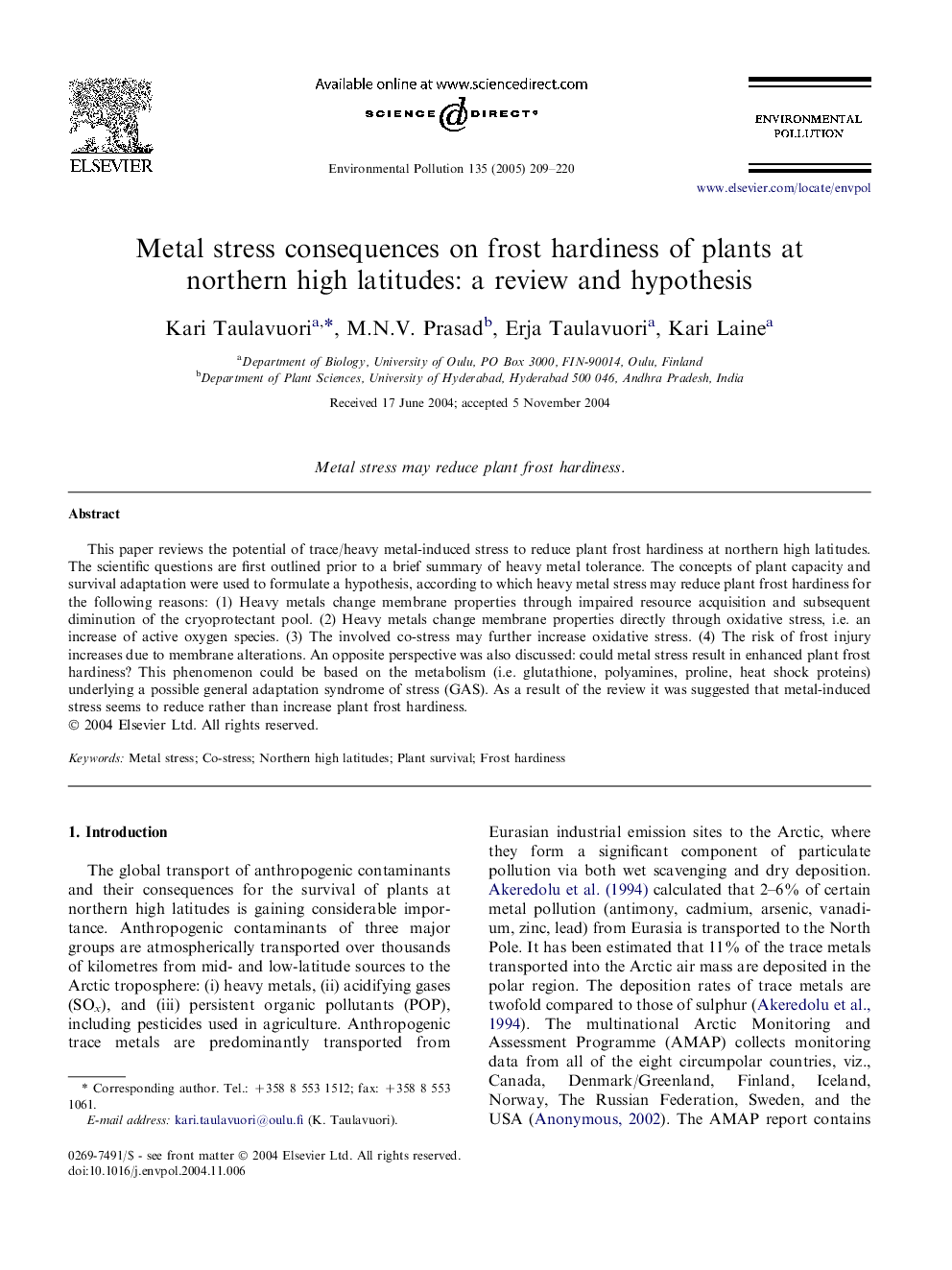| Article ID | Journal | Published Year | Pages | File Type |
|---|---|---|---|---|
| 9456532 | Environmental Pollution | 2005 | 12 Pages |
Abstract
This paper reviews the potential of trace/heavy metal-induced stress to reduce plant frost hardiness at northern high latitudes. The scientific questions are first outlined prior to a brief summary of heavy metal tolerance. The concepts of plant capacity and survival adaptation were used to formulate a hypothesis, according to which heavy metal stress may reduce plant frost hardiness for the following reasons: (1) Heavy metals change membrane properties through impaired resource acquisition and subsequent diminution of the cryoprotectant pool. (2) Heavy metals change membrane properties directly through oxidative stress, i.e. an increase of active oxygen species. (3) The involved co-stress may further increase oxidative stress. (4) The risk of frost injury increases due to membrane alterations. An opposite perspective was also discussed: could metal stress result in enhanced plant frost hardiness? This phenomenon could be based on the metabolism (i.e. glutathione, polyamines, proline, heat shock proteins) underlying a possible general adaptation syndrome of stress (GAS). As a result of the review it was suggested that metal-induced stress seems to reduce rather than increase plant frost hardiness.
Related Topics
Life Sciences
Environmental Science
Environmental Chemistry
Authors
Kari Taulavuori, M.N.V. Prasad, Erja Taulavuori, Kari Laine,
